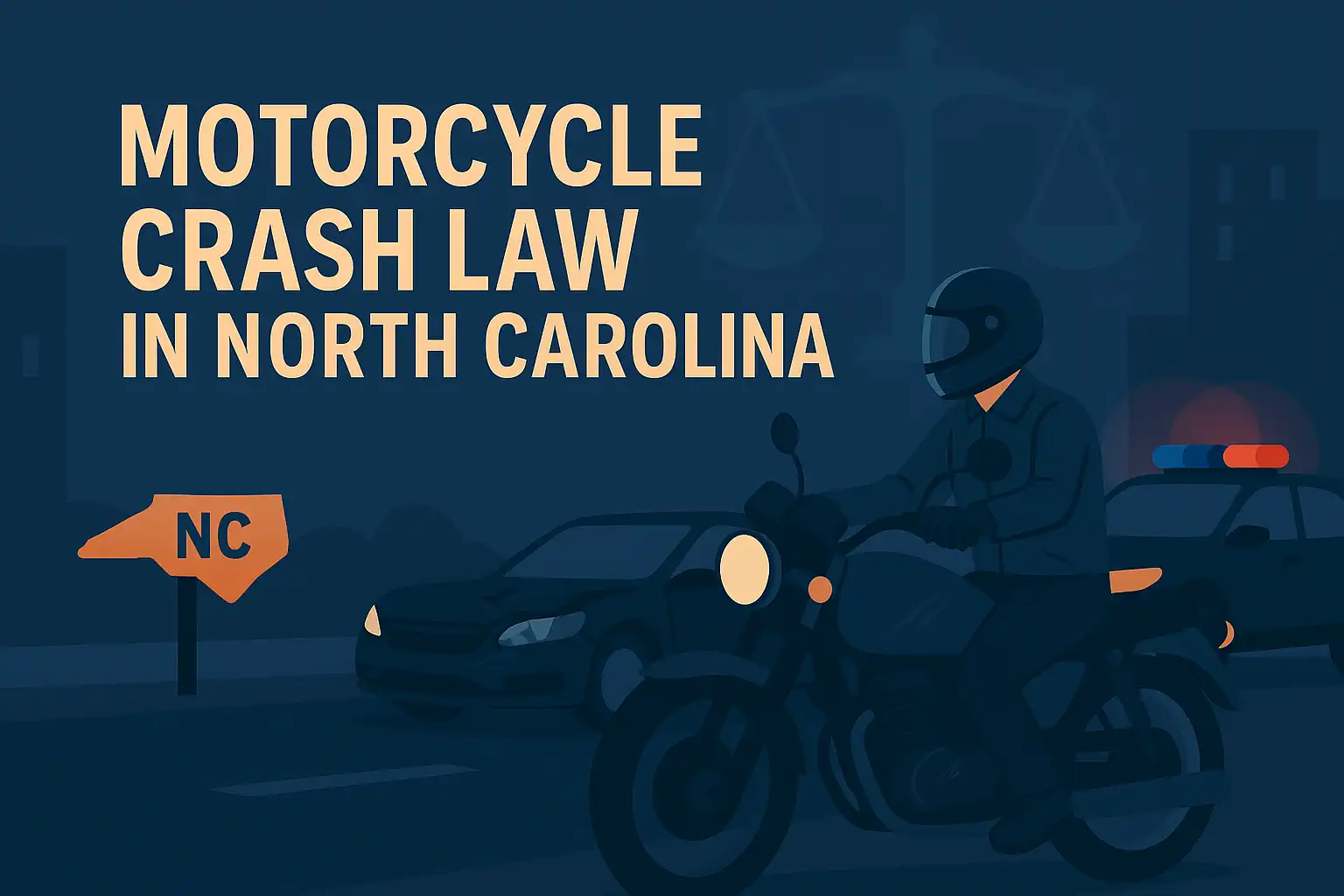Available 24/7
Se Habla Español
Free Case Evaluation
Evaluación gratuita de caso
(919) 438-0065

Motorcycle crash law hinges on proving fault. North Carolina is unique—it still uses a strict contributory negligence rule. If a motorcyclist is even slightly at fault—even 1 percent—they may be barred from recovering damages.
State statute § 1‑139 addresses contributory negligence as an absolute defense.
North Carolina is an at-fault state: the driver responsible for the crash must compensate the motorcyclist.
Key elements to prove fault include:
Because of contributory negligence, even minor admissions or mistakes at the scene can jeopardize recovery. The “last clear chance” doctrine is a rare exception: if the other party had the final opportunity to avoid the crash, you may still recover damages even if partially at fault.
North Carolina law (N.C.G.S. § 20‑140.4) mandates that all motorcycle operators and passengers wear helmets conforming to Federal Motor Vehicle Safety Standard 218 (FMVSS 218).
Helmets must feature:
Riders under age 21 are required to wear a helmet at all times; those 21 and older are exempt but strongly encouraged to use one.
Not wearing a compliant helmet may not bar a claim outright, but insurers frequently argue it contributed to your injuries, especially under contributory negligence rules.
Most states use comparative negligence, reducing recovery by your percentage of fault. North Carolina stands out by using the pure contributory rule, which completely bars any recovery even if you're just 1 percent at fault.
If they were negligent, you may file a third-party claim—but if you share fault, you may recover nothing due to contributory negligence rules.
No. Most accidents result from errors by other drivers—failure to yield, blind spots, unsafe turns—but blame gets assigned aggressively.
Fault is based on negligence. Police reports, eyewitness testimony, and accident reconstruction help establish who breached the duty of care.
North Carolina’s legal system makes motorcycle crash cases harder because:
That is why Paul Robinson Law, we strive to:
Call Us At
919-438-0065
105 S Ellington St, Clayton, NC 27520
124 St Marys St Ste 201, Raleigh, NC 27605
800 W Williams St #250 Apex, NC 27502
Clayton Office:
Phone : 919-438-0065
Raleigh Office:
Phone : 919-471-3200
Apex Office:
Phone : (919) 944-4630
105 S Ellington St, Clayton, NC 27520
124 St Marys St Ste 201, Raleigh, NC 27605
800 W Williams St #250 Apex, NC 27502
Copyright @2026 The Law Offices Of Paul Robinson. All Rights Reserved.
This site is for information purposes only. No attorney-client relationship is created by use of this site. No legal advice is intended by its use. An attorney-client relationship is only created speaking to an attorney and signing a representation agreement.
By providing your phone number, you agree to receive text messages from Paul Robinson Law, PLLC. Message and data rates may apply. Message frequency varies.

